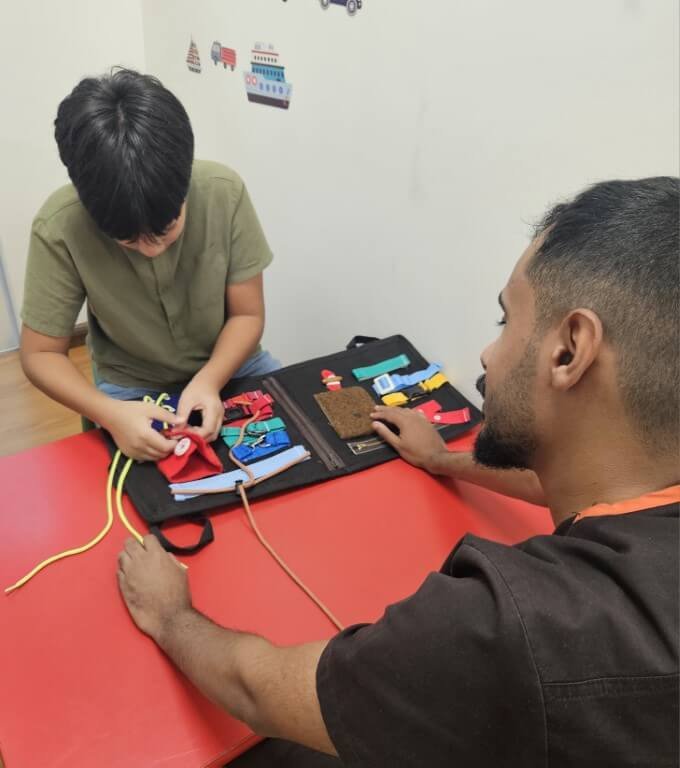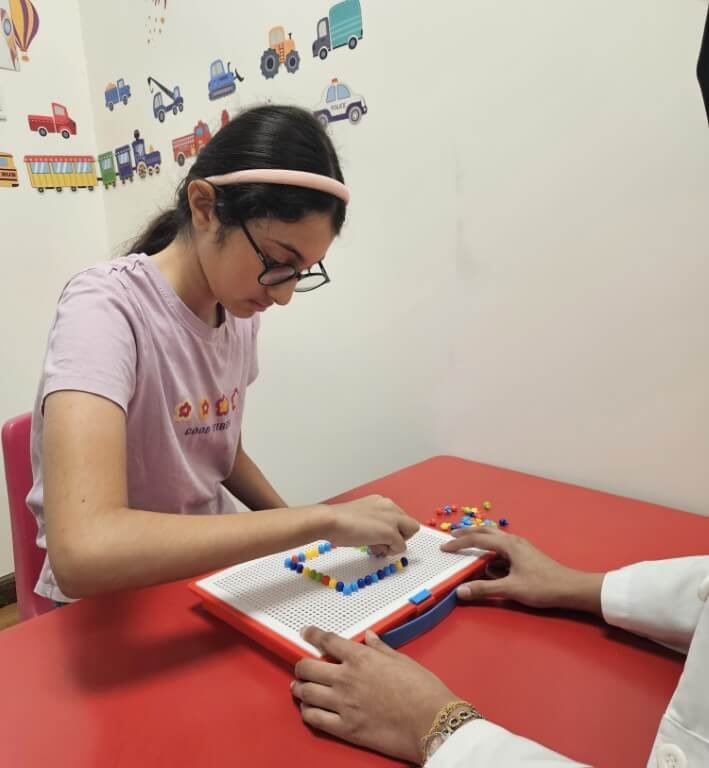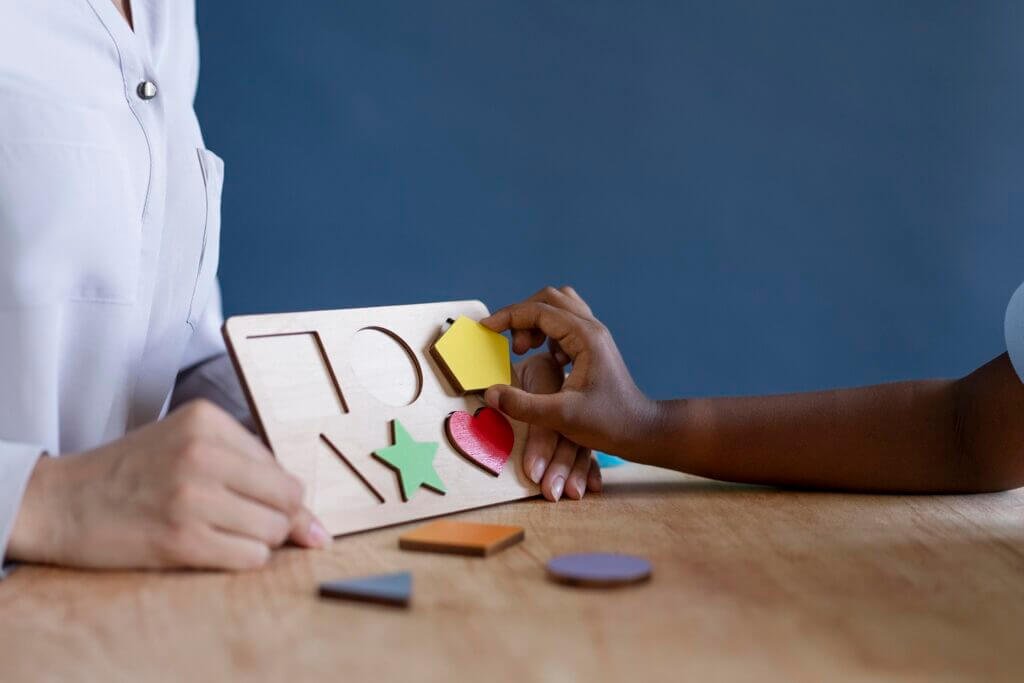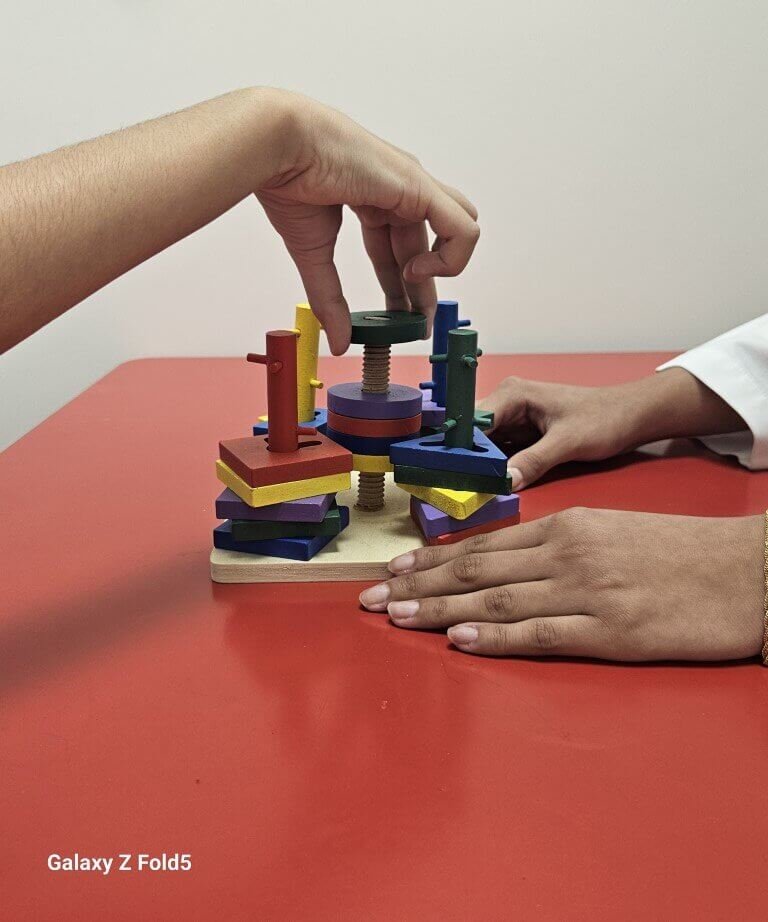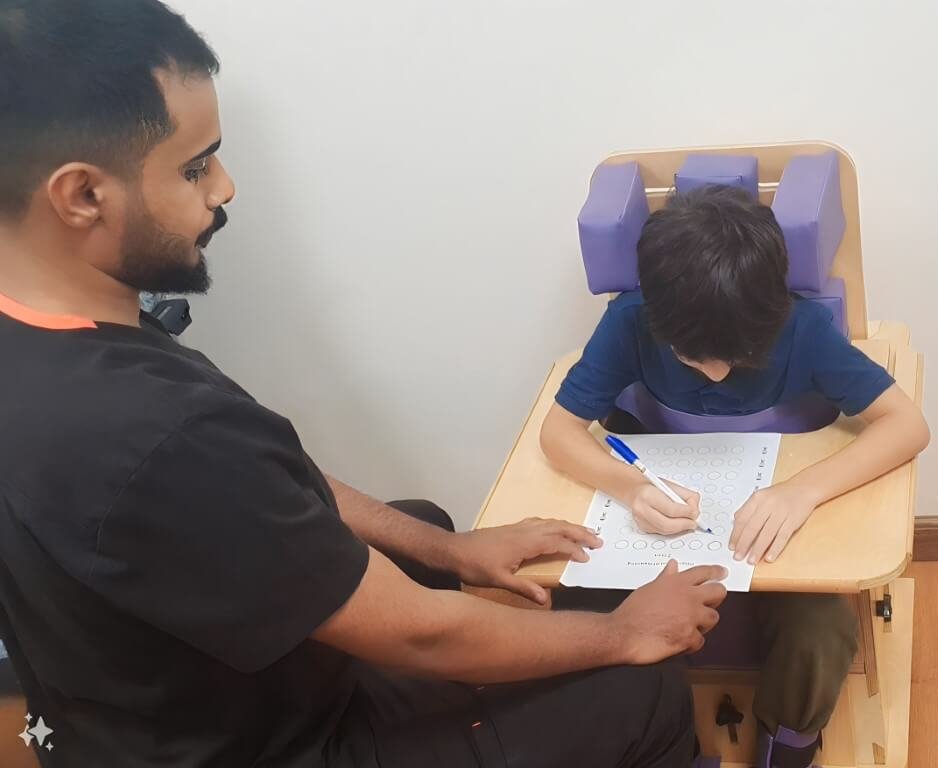It aims to train the child and provide him with the necessary skills with the aim of enhancing and organizing the five senses, which helps the child to be able to interact and communicate with the environment around him.

- Foundation of development: Sensory abilities are the foundation for the development of many other skills such as movement, play, learning, and communication.
- Impact on behavior: Sensory processing disorders may affect a child's behavior and cause difficulties in learning and social adjustment.
- Improve quality of life: By developing sensory abilities, a child can live a more independent and happier life.
- Comprehensive Assessment: The occupational therapist begins with a comprehensive assessment of the child's senses to identify strengths and weaknesses.
- Develop an individualized treatment plan: A customized treatment plan is developed for each child based on the assessment results and specific goals.
- Various therapeutic activities: The treatment includes a wide range of activities that target different senses, such as:
- Tactile activities: playing with tactile toys, bathing with foam, using different tools to touch.
- Movement activities: Movement activities that develop proprioception and vestibular sense, such as rocking and massage.
- Visual activities: visual games, activities that develop visual discrimination.
- Hearing activities: sound games, listening to music.
- Taste and smell activities: Activities that develop the senses of taste and smell.
- Home and School Training: Occupational therapists work with parents and teachers to implement treatment strategies in different settings.
- Collaboration with the care team: Occupational therapists collaborate with other professionals such as speech-language pathologists and behavioral therapists to achieve the best outcomes.







